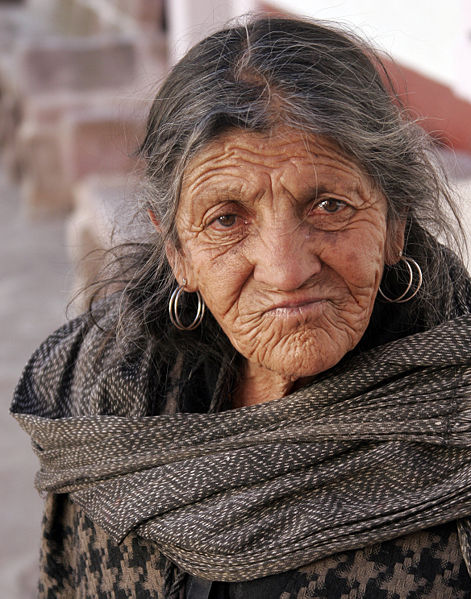Living to 115
Interview with
You might have heard of mutations - which are effectively genetic spelling mistakes  in DNA that crop up as we age - as being the cause of diseases like cancer. But are these errors always bad for us?
in DNA that crop up as we age - as being the cause of diseases like cancer. But are these errors always bad for us?
This week, scientists in Amsterdam have been looking at the blood of a 115 year old woman to see what her genes can tell us about living longer. Ginny Smith spoke to Henne Holstege from the VU University Medical Center in Amsterdam who led the study.
Ginny - Now, 115 years was pretty impressive. Was the woman still healthy at that age?
Henne - Well, at that time, she had a gastric tumour and that's actually what she died of. But her blood cells were still very healthy.
Ginny - That was what you were looking at - her blood cells. So, what did you find?
Henne - Well actually, what we found is that her blood cells had many mutations, 450 in a non-repetitive genome. The fractions of blood cells that had this mutations were such that it could only be possible that they were derived from only two stem cells. One of which was actually derived from the other, and that, we did not expect to find.
Ginny - So, what's the case in a young person for example? How many stem cells would their blood cells be derived from?
Henne - Well, it is estimated that everybody is born with about 20,000 blood stem cells over which about a thousand are active simultaneously. So, 2 then is a very, very limited number.
Ginny - But she was still okay even though she only had this two. What do we think was going on there?
Henne - Well, it could be that during our ageing, the amount of stem cells really decreases enormously. And so, what happens if she would've grown older if she would've not have died from this gastric tumour, what would have happened then if she would've had only 1 stem cell or having no stem cells is not united with life. So, what would that mean?
Ginny - So, what does this tell us about ageing and what might cause that process?
Henne - Well, we don't really know what exactly happens to all the other stem cells. It could be that they are inactive or senescent. We have no idea, but we did see that the telomeres had shortened extremely compared to all the other tissues that we tested.
Ginny - Can you explain to me what exactly telomeres are and why they're important?
Henne - So, telomeres are at the end of each chromosome and with every division of each cell, the telomeres shorten and it's been found that when they get short to a certain limit that the cell that has these telomeres or shortest telomeres will die. So, it could be that the stem cells have had so many divisions that they could not live any longer and died. But we don't know that is actually the case. We do know that they were very short though, the telomeres.
Ginny - So, you talked about this woman having 450 mutations. That sounds like a lot. How do you know that she wasn't just born with them?
Henne - Well, we tested her blood cells and we compared that with the brain cells and the brain cells hardly divide after birth and the blood cells, obviously, they had to supply all the blood cells. So, the blood stem cells had had many divisions after birth. So, what we did is we used the brain cells as a proxy for her genome during birth and then we compared that with the blood cells. And those changes are what we counted.
Ginny - Okay and what do you think the next step is? I mean, this was done on one woman. Are you looking for other people who are 115 to do the same sort of process on?
Henne - Well, 115 is a pretty peculiar age to get, so we are looking at other people with extreme ages and we are trying to find the same thing.
Ginny - And we're hoping that this maybe one day will give us the elixir of youth.
Henne - Well, I mean, lots of research is necessary to do that, but yes, it could be that this an extremely important part of - if there's no telomeres left or if all stem cell are inactive then that may be a bit of a difficult thing to live with so, yeah.
- Previous World's Smallest Magazine Cover
- Next Improving cochlear impants









Comments
Add a comment